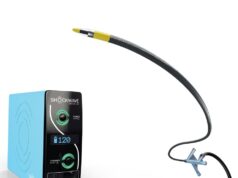 Viz.ai has announced a partnership with Illuminate, a developer of proprietary natural language processing (NLP) and artificial intelligence (AI) software that discovers at-risk patients from electronic medical records (EMR), assesses disease severity, and facilitates follow-up surveillance for a variety of diseases.
Viz.ai has announced a partnership with Illuminate, a developer of proprietary natural language processing (NLP) and artificial intelligence (AI) software that discovers at-risk patients from electronic medical records (EMR), assesses disease severity, and facilitates follow-up surveillance for a variety of diseases.
The partnership will enable healthcare providers to make timely, critical decisions for aortic aneurysm patients while improving compliance with pre- and post-surgical surveillance programmes, Viz.ai said in a press release.
“Aortic aneurysm is often called a silent killer with few symptoms before it is too late,” said Jayme Strauss, chief clinical officer at Viz.ai. “We are excited to collaborate with Illuminate, harnessing the power of AI and NLP to mine insights from EMR data, radiological reports, and imaging studies. This partnership will improve the standard of care for these patients and help healthcare providers coordinate and deliver care at the right time.”
Aortic aneurysms will often cause no obvious symptoms before a life-threatening rupture occurs, so early detection and monitoring are critical. Illuminate’s NLP capability is a complement to Viz.ai’s platform, which will now offer healthcare systems a solution to detect more suspected aortic aneurysms earlier and ensure that patients have access to the life-saving treatments or surveillance that they need by cross-functional care teams, the company said in a press release.
“Aortic surveillance and screening programs are critical to ensuring that aortic aneurysm patients have their aortic aneurysms detected earlier so they get the care and follow-up that they need. Unfortunately, we have shown that patients often fall through the cracks in the care pathway,” said Steven Okuhn, chief medical officer at Illuminate and vascular surgeon at the San Francisco VA Medical Center (San Francisco, USA). “This unique offering will help improve aortic aneurysm detection and patient workflow by bringing together natural language processing and image-based artificial intelligence. I am incredibly excited about this clear advancement in aortic patient care.”












